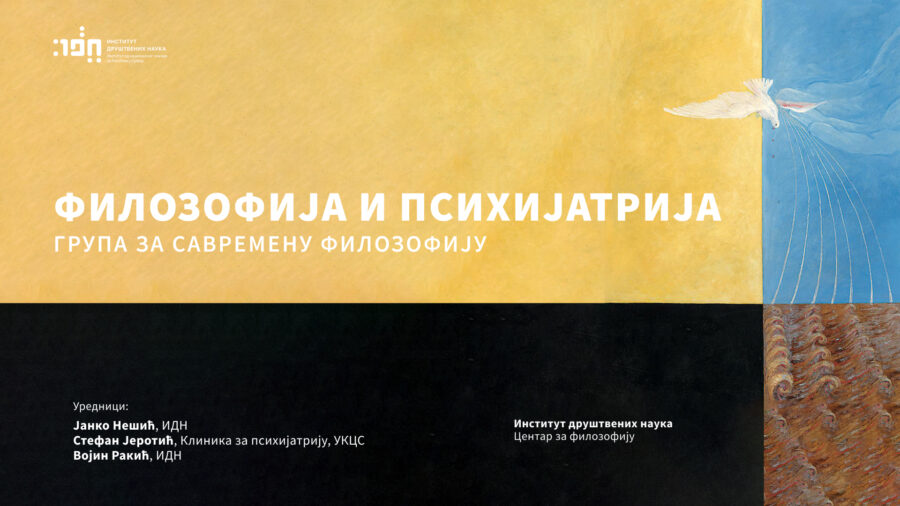Can one mental disorder (Attention Deficit Hyperactivity Disorder) be a good “ally” in the battle against another mental disorder (Major Depressive Disorder)? This will be explored by philosophy doctoral candidate Petar Nurkić in his lecture titled “Why I Shouldn’t Get It Together – ADHD and Other Unusual Allies in the Fight Against Depression,” scheduled for October 17th at 11:00 AM in the Main Hall of IDN.
Abstract: The title of our presentation is intentionally chaotic. It corresponds to the task of examining the role of hyperactivity and attention deficit in alleviating severe depressive disorder. In simpler terms, we will attempt to answer how the lack of structure in our daily “worries” can be exactly what we need to overcome them. The simultaneous presence of Attention Deficit Hyperactivity Disorder (ADHD) and Major Depressive Disorder (MDD) represents a complex psychopathological circumstance for individuals. While ADHD is characterized by impulsivity, hyperactivity, and attention deficit, MDD is defined as a persistent feeling of sadness, lack of interest, and reduced functional activities. In our presentation, we will investigate the hypothesis that certain ADHD characteristics can serve as unusual defence and coping mechanisms for individuals diagnosed with MDD. We will try to show that what is commonly referred to as “excess energy” and “distractibility” can successfully overcome the typical fatigue and various forms of stagnation attributed to depression. MDD is a disabling condition with symptoms such as lethargy, hopelessness, and lack of motivation. On the other hand, the hyperactivity and impulsivity that are prominently observed in ADHD represent a contrasting range of behaviours.
Hyperactive behaviour can temporarily introduce a sense of liveliness and spontaneity and sometimes manifest as active participation in various hobbies and activities that can counteract the apathy associated with MDD (Kolar et al., 2008). Reports from individuals simultaneously diagnosed with ADHD and MDD indicate a diversity of experiences. For some, the impulsive and proactive tendencies of ADHD serve as a catalyst for engaging in activities and exploration, which, in turn, can provide brief relief from depressive symptoms. Others describe a complex balance between disorders, where hyperactivity opposes the lethargy of depression, and intense focus (often referred to as hyperfocus in ADHD) serves as a useful tool for constructive engagement in activities. Recognizing the subtle interaction between ADHD and MDD is crucial for mental health professionals. The integration of psychostimulants, antidepressants, and cognitive-behavioural therapy enables addressing the specific challenges and opportunities arising from the coexistence of these disorder.
In the concluding part of the presentation, we will elaborate further on the complexity and adaptive elements of the simultaneous occurrence of ADHD and MDD. Recognizing the role of ADHD as a possible coping mechanism for MDD allows psychiatrists and psychotherapists to develop more nuanced and comprehensive therapeutic approaches, considering this dual diagnosis as a specific entity.
Petar Nurkić is a doctoral student in philosophy at the Faculty of Philosophy, University of Belgrade. He is also a research assistant at the Institute of Philosophy at the same faculty. His areas of interest include epistemology and the philosophy of science.
This is the seventh lecture in the “Philosophy and Psychiatry” seminar organized by the Center for Philosophy at the Institute of Social Sciences.
https://zoom.us/j/92062787858?pwd=aDl0MlRwS2oxMmNQSUNIbXRaMzZYdz09
Meeting ID: 920 6278 7858
Passcode: 590939

